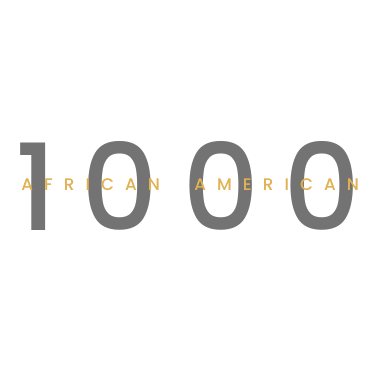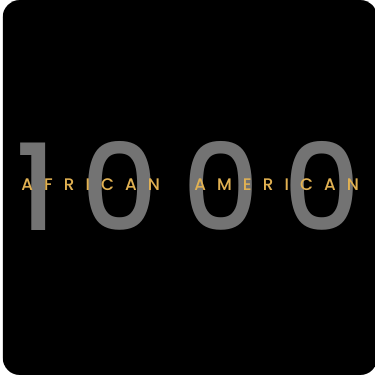Category 4: Health and Wellness - Issues Impacting African Americans | #AfricanAmerican1000
The Coalition of Advocates updates, manages, tracks, and reports the following issues and solutions related to health and wellness activities in the United States that directly impact African Americans:
- Higher Rates of Chronic Diseases - African Americans experience higher rates of hypertension, diabetes, and heart disease (CDC).
- Disparities in Maternal Mortality - Black women are three times more likely to die from pregnancy-related complications than white women (CDC).
- Limited Access to Healthcare Facilities - Predominantly Black neighborhoods often lack hospitals and clinics.
- Racial Bias in Medical Treatment - African Americans receive lower-quality care compared to other groups.
- Disparities in Health Insurance Coverage - African Americans are more likely to be uninsured or underinsured.
- Higher Cancer Mortality Rates - Black Americans face higher death rates from cancers like breast and prostate cancer (American Cancer Society).
- Limited Representation in Clinical Trials - African Americans are underrepresented in medical research studies.
- Mental Health Stigma - Mental health issues are often stigmatized within the African American community.
- Disparities in COVID-19 Outcomes - Black Americans experienced higher hospitalization and death rates during the pandemic.
- Lack of Access to Preventive Care - African Americans are less likely to receive preventive screenings and treatments.
- Food Deserts in Predominantly Black Areas - Limited access to healthy food options contributes to poor health outcomes.
- Higher Rates of Childhood Obesity - Black children are disproportionately affected by obesity (CDC).
- Discrimination in Pain Management - Studies show doctors are less likely to adequately treat pain in African Americans.
- Lower Rates of Organ Transplant Access - Black patients face longer wait times for organ transplants.
- Underrepresentation of Black Physicians - Only 5% of U.S. doctors identify as African American.
- Disparities in Mental Health Treatment - African Americans are less likely to receive mental health counseling or therapy.
- Limited Access to Substance Abuse Treatment - Black Americans face barriers in accessing addiction recovery programs.
- Higher Rates of Infant Mortality - Black infants die at twice the rate of white infants (CDC).
- Inadequate Funding for Community Health Programs - Programs serving Black communities are often underfunded.
- Racial Bias in Emergency Care - African Americans report longer wait times in emergency rooms.
- Lower Life Expectancy - Black Americans have a shorter average life expectancy compared to white Americans.
- Barriers to Dental Care - African Americans are less likely to receive regular dental checkups.
- Disparities in Vaccination Rates - Black communities experience lower vaccination rates due to mistrust and accessibility issues.
- High Rates of Asthma - African American children are more likely to develop asthma and experience severe symptoms.
- Inadequate Health Education - Many African American communities lack access to health literacy programs.
- Higher Rates of Stroke - Black Americans have nearly double the rate of stroke compared to white Americans.
- Limited Access to Fitness Facilities - Predominantly Black neighborhoods often lack gyms and recreation centers.
- Disparities in Access to Telehealth - African Americans face barriers to using telemedicine services.
- Higher Rates of Obesity - Black Americans have higher obesity rates due to systemic factors.
- Underrepresentation in Nursing - Only 9% of registered nurses in the U.S. are African American.
- Environmental Racism - African Americans are more likely to live in areas with pollution and hazardous waste.
- Disparities in Vision Care - Black Americans are less likely to have regular eye exams.
- Higher Rates of Kidney Disease - African Americans are more likely to develop end-stage renal disease.
- Barriers to Health Insurance Enrollment - Systemic issues make it harder for African Americans to access affordable health insurance.
- Discrimination in Mental Health Diagnoses - African Americans are more likely to be misdiagnosed with severe psychiatric disorders.
- Disparities in Stroke Recovery - Black patients receive fewer rehabilitation services after a stroke.
- Limited Access to Fertility Treatments - African Americans face barriers to infertility care.
- Higher Rates of PTSD - Systemic racism and exposure to violence contribute to higher PTSD rates in Black communities.
- Underrepresentation in Public Health Leadership - Few African Americans hold leadership roles in public health.
- Inadequate Access to HIV Treatment - African Americans are disproportionately affected by HIV/AIDS.
- Barriers to Smoking Cessation Programs - Black smokers have less access to resources for quitting.
- Higher Rates of Lung Cancer - African Americans are more likely to die from lung cancer.
- Limited Access to Geriatric Care - Black seniors face challenges in accessing specialized elderly care.
- Disparities in Prescription Drug Access - African Americans often face higher costs and lower availability of medications.
- Higher Rates of Hepatitis - African Americans experience higher rates of hepatitis B and C infections.
- Barriers to Prenatal Care - Black women are less likely to receive adequate prenatal care.
- Inadequate Funding for Rural Health Clinics - Rural Black communities often lack healthcare resources.
- Limited Mental Health Services in Schools - Predominantly Black schools often lack mental health resources.
- Higher Rates of Sudden Cardiac Death - African Americans are disproportionately affected by sudden cardiac arrest.
- Lack of Access to Healthy Food in Schools - Predominantly Black schools often have substandard meal programs.
- Barriers to Physical Therapy Access - African Americans are less likely to receive rehabilitation services after injuries.
- Higher Rates of Sickle Cell Disease - Black Americans are disproportionately affected by this genetic condition.
- Inadequate Access to Health Screenings - Fewer Black Americans receive screenings for diseases like cancer and diabetes.
- Disparities in Dermatology Services - African Americans often face challenges accessing skin care specialists.
- Limited Access to Sexual Health Education - Many Black communities lack comprehensive sexual health programs.
- Barriers to Emergency Preparedness Resources - Black communities often lack disaster preparedness plans.
- Higher Rates of Hypertension - African Americans have the highest rates of high blood pressure worldwide.
- Inadequate Funding for Mental Health Research - Research often overlooks issues specific to African American communities.
- Higher Rates of Depression - Black Americans are less likely to be diagnosed and treated for depression.
- Disparities in Home Healthcare Services - African Americans have less access to in-home medical care.
- Limited Access to Pain Clinics - African Americans are less likely to receive treatment for chronic pain.
- Higher Rates of Diabetes-Related Complications - Black Americans face more severe outcomes from diabetes.
- Barriers to Vision Correction - African Americans are less likely to receive treatment for nearsightedness and farsightedness.
- Disparities in Cancer Detection - Black Americans are often diagnosed at later stages of cancer.
- Inadequate Care for Chronic Migraines - African Americans report fewer diagnoses and less effective treatment for migraines.
- Higher Rates of Childhood Lead Poisoning - Black children are disproportionately exposed to lead contamination.
- Disparities in Palliative Care Access - African Americans are less likely to receive end-of-life care.
- Barriers to Mental Health Hotlines - African Americans often face long wait times and underfunded services.
- Inadequate Access to Physical Fitness Programs - Black communities often lack affordable exercise opportunities.
- Higher Rates of Hospital Readmissions - African Americans are more likely to be readmitted due to inadequate care.
- Barriers to Health Advocacy Training - Few programs focus on empowering African Americans to advocate for their health.
- Limited Access to Mobile Health Clinics - Black communities benefit less from mobile health services.
- Disparities in Sports Medicine Access - African American athletes receive fewer specialized treatments.
- Barriers to Prescription Assistance Programs - Black patients are less likely to access drug discount programs.
- Higher Rates of Suicide in Adolescents - Suicide rates are rising among African American youth.
- Limited Availability of Free Clinics - Black communities often lack access to free or low-cost healthcare.
- Disparities in Physical Fitness Outcomes - Black Americans experience worse fitness outcomes due to systemic barriers.
- Higher Rates of Workplace Injuries - African Americans are more likely to work in high-risk jobs.
- Barriers to Bariatric Surgery Access - Black Americans face higher obesity rates but fewer options for weight loss surgery.
- Inadequate Funding for Community Gardens - Many Black communities lack access to affordable, healthy food sources.
- Disparities in Sleep Disorder Treatments - Black Americans are less likely to receive treatment for sleep apnea and insomnia.
- Higher Rates of Cervical Cancer - African American women have higher incidence and mortality rates.
- Barriers to Pediatric Specialty Care - Black children are less likely to receive care for complex conditions.
- Underrepresentation in Medical School Enrollment - Few African Americans pursue careers in medicine.
- Disparities in Access to Allergy Specialists - Black Americans often lack treatment for severe allergies.
- Limited Access to Postpartum Support - Black mothers face higher postpartum complications without adequate care.
- Barriers to Accessing Wellness Programs - Corporate wellness initiatives often fail to target African American employees.
- Higher Rates of Workplace Stress - Systemic racism contributes to higher stress levels among Black workers.
- Inadequate Representation in Federal Health Policy - Few African Americans influence healthcare legislation.
- Limited Access to Youth Sports Programs - Predominantly Black communities often lack well-funded athletic programs.
- Disparities in Rheumatology Care - Black Americans are less likely to receive treatment for autoimmune conditions.
- Barriers to Hospice Care - African Americans are less likely to receive compassionate end-of-life care.
- Inadequate Support for Caregivers - Black families face challenges in accessing resources for caregiving.
- Higher Rates of Dental Disease - Black Americans are more likely to experience untreated dental issues.
- Disparities in Physical Therapy Access - African Americans are less likely to access rehabilitation services after surgery.
- Underrepresentation in Health Advocacy Organizations - Few African Americans lead health-focused nonprofits.
- Higher Rates of Smoking-Related Illnesses - African Americans experience higher risks but face barriers to quitting.
- Barriers to Prenatal Education - Many Black women lack access to classes on pregnancy and parenting.
- Limited Access to Affordable Prescriptions - Drug prices disproportionately impact African American communities.
- Underrepresentation in Health Tech Startups - Few Black entrepreneurs lead health technology companies.

